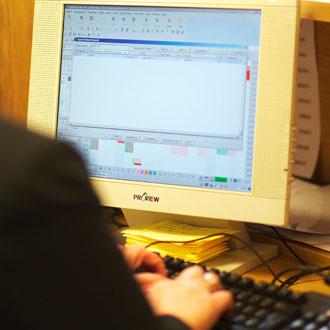GP practices can avoid thousands of appointments and phone calls every year by allowing patients to access to their own records electronically, researchers claim.
A practice with 10,000 patients could save 4747 appointments and 8020 telephone calls annually because these patients can get answers to their questions themselves instead of having to contact their surgeries, researchers found after extrapolating results from a study of online record access at two practices.
Some 229 patients at GP practices in Glossop, Derbyshire and in Hyde, Greater Manchester were surveyed to work out whether accessing their electronic records had increased or decreased their use of the practice over the previous year.
Results showed that 135 Hyde patients had made 255 fewer phone calls overall and needed 212 fewer appointments with doctors, nurses or healthcare assistants. At Glossop the figures for 94 patients were 325 fewer phone calls and 110 fewer appointments.
Savings per patient per year at these two surgeries were £44.39 and £29.08 respectively, said the researchers, led by medical student Caroline Fitton from St George’s Hospital in London.
Certain studies from other countries, including the United States and Finland, have previously highlighted costs savings through giving patients access to their primary care records, the researchers said.
‘The effects in our study are likely to be the result of people doing things for themselves, typical of online experience,’ said the researchers in their paper, published in the London Journal of Primary Care. ‘Patients can find out more about their care and make some decisions without contacting the practice.’
They added: ‘We suggest that the time is right for a full-scale study of record access within general practice, including benefits and costs to both patients and practices, using objective measures rather than self-reported data.’
The researchers caution, however, that the Hyde and Glossop practices have particulary enthusiastic electronic record users, and that patients in affluent areas may be more likely to embrace a record access system than those in more deprived areas.
Ministers have said that patients will not be able to read any retrospective information from their GP records when they are allowed to access them online next year after the RCGP argued that the risks of patients seeing unsuitable information would pile work on practices to check all retrospective records.
Pulse October survey
Take our July 2025 survey to potentially win £1.000 worth of tokens














